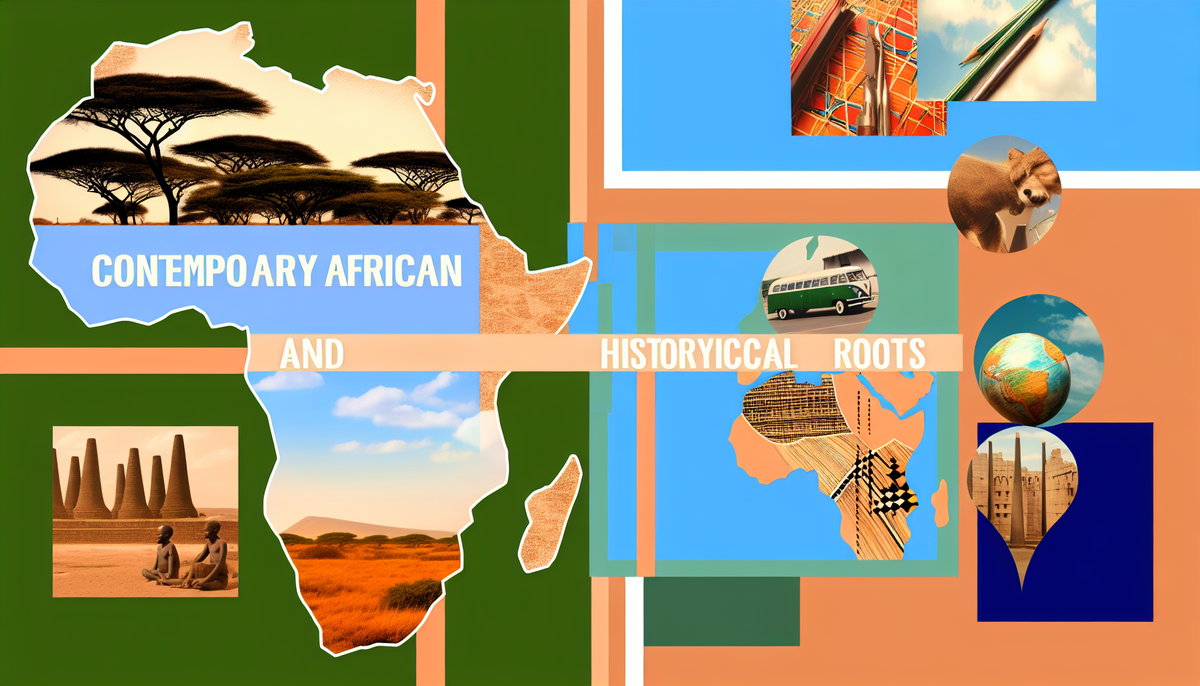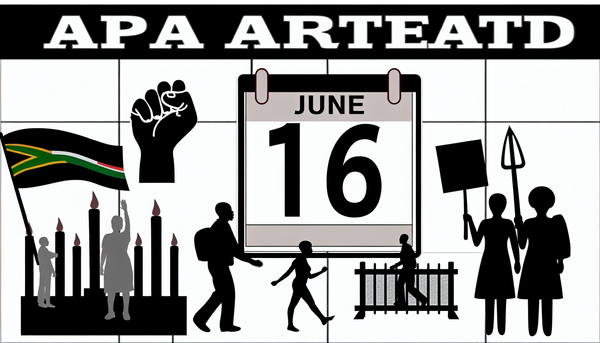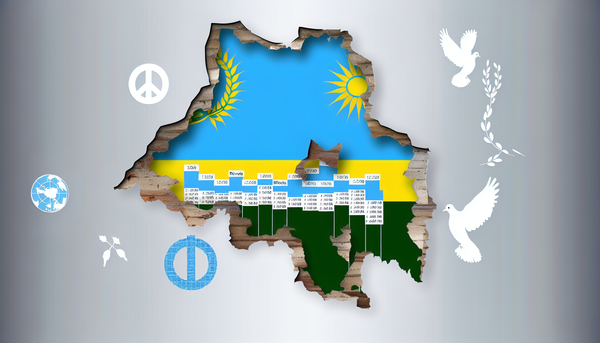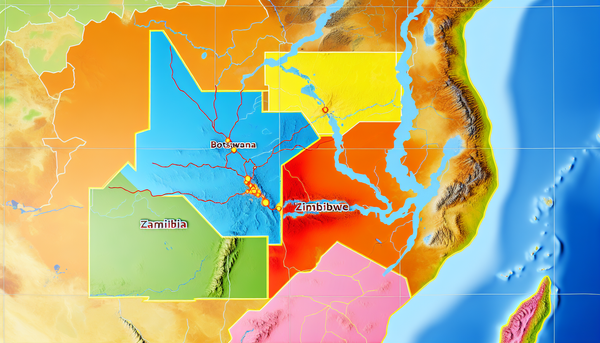Contemporary African Diaspora and Its Historical Roots

Introduction to the African Diaspora: Definitions and Scope
The African Diaspora refers to the dispersion of African people and their descendants across the globe, often due to historical events such as the transatlantic slave trade and colonization. This diaspora is vast and diverse, encompassing communities in North America, the Caribbean, Europe, South America, and beyond. It is crucial to understand the historical context and complexities of the African Diaspora to appreciate the impact it has had on societies worldwide.
The scope of the African Diaspora extends beyond mere physical dispersion; it involves the preservation of cultural traditions, languages, and identities in new lands. The resilience and creativity of the diaspora communities have enriched global culture and contributed to social movements for justice and equality. By exploring the definitions and scope of the African Diaspora, we can gain a deeper understanding of its historical significance and ongoing relevance in today's interconnected world.
Migration Patterns: Ancient Routes and Modern Shifts
Migration has been a significant aspect of African history, with ancient civilizations such as the Axum Empire and the Mali Empire engaging in trade and migration across the continent. These ancient routes laid the foundation for interconnected societies and cultural exchanges that continue to shape the African Diaspora today.
In modern times, migration patterns have evolved due to various factors, including economic opportunities, political instability, and globalization. The transatlantic slave trade forcibly displaced millions of Africans to the Americas, while colonialism and post-colonial dynamics have influenced migration to Europe and other parts of the world.
Today, African migration is characterized by a mix of voluntary and forced movements, with many seeking better livelihoods and opportunities abroad. The complexities of modern migration present challenges and opportunities for diaspora communities to maintain connections with their homelands while navigating the realities of life in new environments. Understanding the historical roots of migration patterns is essential for comprehending the diversity and resilience of the contemporary African Diaspora.
Cultural Legacies: Music, Art, and Literature
The cultural legacies of the African Diaspora are vibrant and multifaceted, encompassing a rich tapestry of music, art, and literature that reflect the diversity and creativity of diaspora communities. From the rhythms of jazz and blues born out of the African American experience to the vibrant Afro-Caribbean music traditions of reggae and salsa, music has been a powerful medium for expressing identity and resistance.
In the realm of art, African diaspora artists have made significant contributions to global art movements, drawing inspiration from traditional African motifs and experiences of migration and displacement. These artistic expressions often challenge stereotypes and celebrate the resilience and beauty of diaspora cultures.
Literature has also been a vital medium for capturing the voices and narratives of the African Diaspora, with writers exploring themes of identity, belonging, and heritage. Works by authors such as Chinua Achebe, Toni Morrison, and Chimamanda Ngozi Adichie have played a crucial role in shaping global literary landscapes and challenging dominant narratives. The cultural legacies of music, art, and literature within the African Diaspora continue to illuminate the interconnectedness of diverse communities and the power of creative expression.
Economic Impact: Contributions and Challenges
The economic impact of the African Diaspora spans vast contributions to various sectors while also facing distinct challenges that hinder full economic integration and prosperity. Diaspora communities have played a significant role in global trade, labor markets, and entrepreneurship, contributing to economic growth and innovation in their host countries and homelands.
Remittances, in particular, have been a crucial source of income for many African families, with diaspora members sending money back home to support relatives and invest in local businesses. These financial contributions have had a positive impact on poverty reduction and economic development, demonstrating the economic power of the African Diaspora.
However, the economic contributions of the diaspora are often overshadowed by systemic challenges such as discrimination, limited access to opportunities, and lack of recognition for their skills and expertise. Overcoming these barriers requires addressing structural inequalities and creating avenues for diaspora communities to fully participate in economic activities and decision-making processes. By recognizing and supporting the economic contributions of the African Diaspora, societies can harness the full potential of diverse talent and resources for sustainable development.
Political Influence in Homeland and Abroad
The African Diaspora has wielded significant political influence both in their host countries and in their homelands, shaping policies, advocating for rights, and mobilizing communities for social change. In host countries, diaspora members have been active participants in political processes, running for office, advocating for immigrant rights, and influencing policies related to issues affecting their communities.
Moreover, the political influence of the African Diaspora extends beyond national borders, with many diaspora organizations engaging in transnational activism and advocacy to address global challenges such as human rights violations, environmental justice, and international development. By leveraging their networks and resources, diaspora communities have been instrumental in raising awareness and mobilizing support for various causes.
In their homelands, diaspora members often play a critical role in promoting democracy, good governance, and economic development through initiatives such as knowledge transfer, investment, and lobbying for policy reforms. The political influence of the African Diaspora underscores the importance of diaspora engagement in shaping inclusive and equitable societies both at home and abroad.
Social Structures: Communities and Identities
Social structures within the African Diaspora are characterized by diverse communities and multifaceted identities that reflect the intersections of heritage, culture, and lived experiences. Diaspora communities maintain strong bonds through shared traditions, languages, and customs, creating networks of support and solidarity across borders.
Identity formation within the African Diaspora is a dynamic process that navigates between ancestral roots and contemporary realities, resulting in hybrid identities that embody both cultural heritage and global influences. This complex interplay of identities fosters a sense of belonging and resilience within diaspora communities, challenging stereotypes and celebrating diversity.
Community organizations and cultural institutions play a vital role in preserving and promoting the social structures of the African Diaspora, providing spaces for collective memory, education, and empowerment. These networks facilitate social cohesion, mutual aid, and advocacy for diaspora members, contributing to the preservation of heritage and the advancement of community interests.
By understanding and valuing the social structures of communities within the African Diaspora, we can recognize the richness and complexity of diaspora identities and experiences, fostering greater social cohesion and inclusivity within society.
Future Prospects and Ongoing Developments
The African Diaspora faces a range of opportunities and challenges as it navigates the complexities of globalization, migration, and cultural exchange in the contemporary world. Future prospects for the diaspora include continued contributions to global economies, politics, and social movements, leveraging their diverse talents and networks for positive change.
Ongoing developments in technology and communication have facilitated greater connectivity and collaboration among diaspora communities, enabling new forms of engagement and advocacy across borders. Social media platforms, virtual networks, and digital platforms have empowered diaspora members to amplify their voices, mobilize resources, and promote awareness about issues affecting their communities.
However, challenges such as discrimination, economic disparities, and political instability persist and require collective action and solidarity to address effectively. By building on the strengths of community resilience, cultural heritage, and intergenerational knowledge, the African Diaspora can harness its potential to shape a more inclusive and equitable future for generations to come. Embracing ongoing developments and nurturing future prospects will be essential in realizing the full potential of the African Diaspora in a rapidly changing global landscape.



